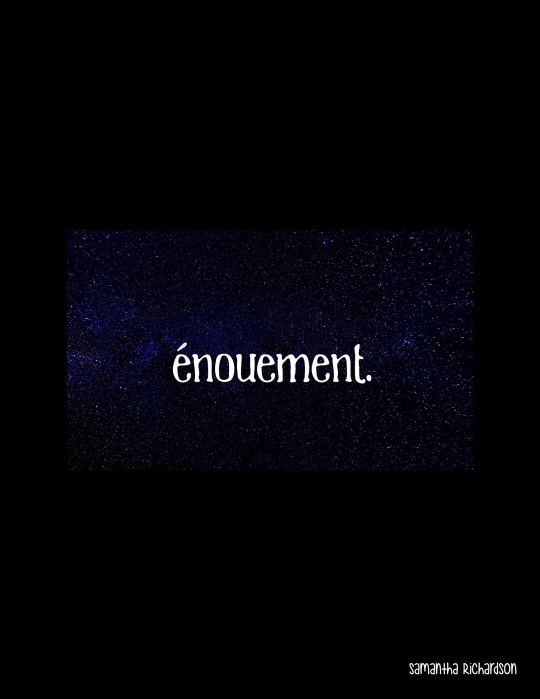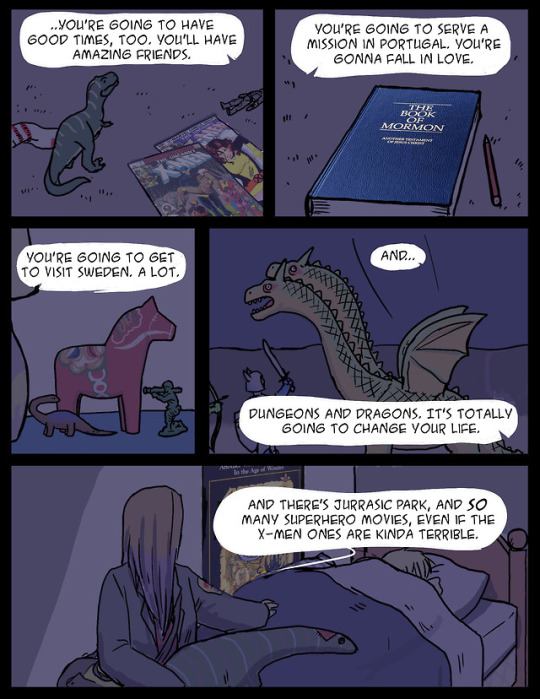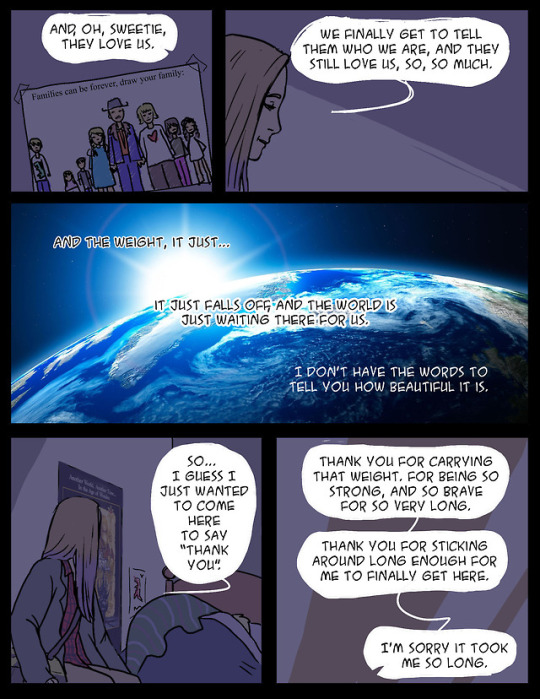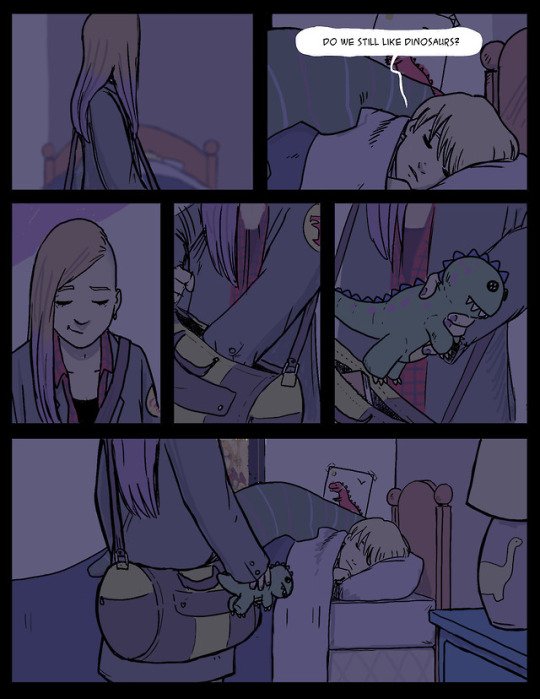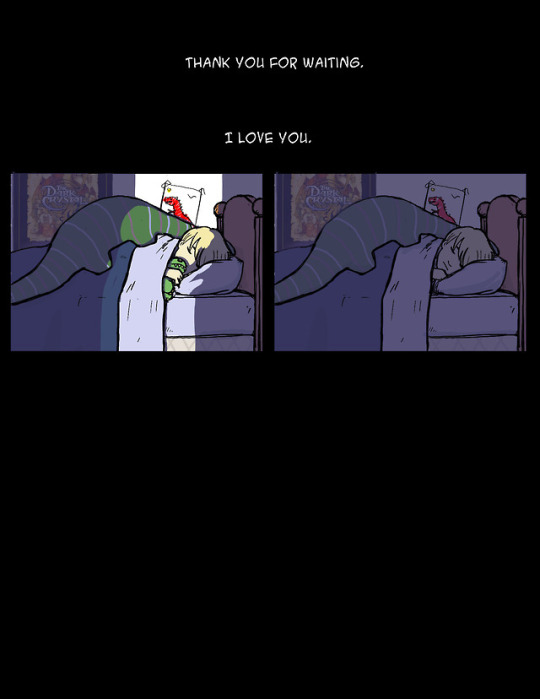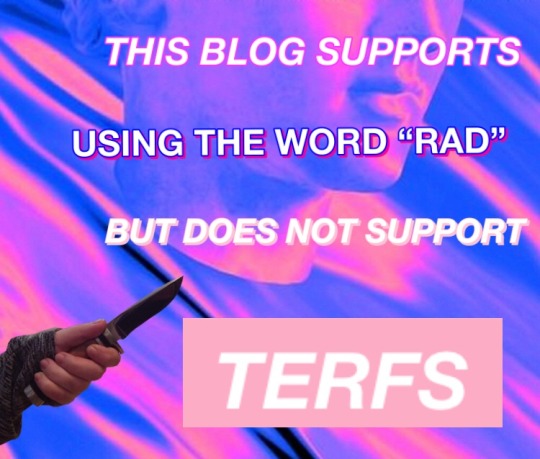Don't wanna be here? Send us removal request.
Text
The RCA puts up signs in Brookline MA from time to time. This time it was "all war is class war" and "fight Trump AND Democrats". I love it because this entire town is A - thinking how bad things are beacuse the Dems are not in power. B - would be the 'bad guys' in any class war. Once again, I'm begging leftist to speak with actualy survivors of USSR.
0 notes
Text
Also, while again I dgaf about the united healthcare ceo (he can rot in hell) I will say that as a member of a tiny ethnic group which has been stereotyped as evil rich greedy baby blood sucking for literal millennia I don’t trust y’all with vigilante justice in the slightest.
2K notes
·
View notes
Text
A Quick Guide for Writing Comics with Kabbalah - Don’t
A few months ago, Louise Simonson and Kireon Gileon compared the Phoniex’s White Room as the Jewish Kabbalah term Tiferet - תפארת. I was quite surprised, not just because I didn’t remember that was the title of Al Ewing’s Defenders Beyond issue 3, but also because it didn’t make sense. So after some comments on Twitter led me to read that issue, I still didn’t get why the White Room would be associated with Tifferet, of all the sefirot. This is not the first time that happened to me.
I was always confused when hearing X-fans talking about some common knowledge regarding how Morrison used Kabbalah to explain the Phoenix. Now, it’s been some time since I’ve read that run (which I did read again before writing this) so I must have missed it. But you’d think I would remember something like that. The same thing happened with The Resurrection of Mangeto Issue 01, where others online noticed the Kabbalistic elements in the story while I didn’t. Obviously, many of the people I follow on social media and/or read and listen to their articles and podcasts are more fluent in X-Men comics than I am, but I can confidently say that I am more fluent in Kabbalah than they are. So how come I keep missing it?
The answer was clear once I read a thread about the Resurrection of Magneto and the symbolgies shown in the issue. The thread, by @arakkosuperstar made a lot of sense when it came down to explaining Ewing’s storytelling. But it didn’t make a lick of sense when it came down to Kabbalah. This makes sense, since I don’t think Ewing is even fluent in Hebrew and the 3 dialects of Aramaic that are needed just to understand basic Kabbalistic texts.
So let’s start with what Kabbalah is. Kabbalah is a general name for several Jewish mystic traditions. It literally means “being received” as those traditions are supposed to be moved on from Rabbi to student throughout the generations. But when we say the word Kabbalah today it is most likely referring to the teachings of Ha’Ari - Rabbi Issac Luria who was active in 16th century Safed (Tzfat) and, alongside Rabbi Yosef Karo, reshaped all of Judaism in modern times.In his teaching you will find terminology like The Tree of life, Sefirot, Ein Sof and others that come up in western culture (and Anime for some reason). If you ask most religious Jews they will tell you that you are not supposed to study Kabbalah until you are 40. But that is a rather late tradition that came as a response to two connected messianic cults in Europe. Before that, most traditions suggest learning it only after you are 25, married, or “filled your belly with Talmud”.
The main subject of Kabbalah is trying to study and maybe understand the divine as a religious act of warship. Some, Like Ha'Ari, took it to the worlds of theology, while others took it to the world of ethical codes of conduct. The Hasidic movement, founded by Rabbi Israel Ba’al Shem-Tov popularized the theological aspects of Kabbalah and applied them to the realms of human psychology. While trying to understand the decision making behind the use of Kabbalah in modern comics, I was introduced to the term Kabbalah magic, which is not a thing. The closest thing we have is “applied Kabbalah'' which comes down to amulets or invoking a specific aspect of the divine. A nice way to describe it is that the world was programmed and built using the Hebrew language and that is why we can input cheat codes. Yes, we are breaking the rules of the game, but only because the divine programmer put those options in the first place.
The more I looked into the “Kabbalah” origins of these ideas I found out more and more about Hermetic Qabalah and how much it’s not Kabbalah. I found out about terms like Sefirot-Shakras-Tarot as if those things are the same. Since the religious act of worshiping in Kabbalah is to study and seek to understand the divine, mixing these terms so bluntly is not only not accurate - it’s offensive. Using an outside, non-Jewish tradition in order to better understand Kabbalah is one thing, but mixing these religions up is just a brutal act of cultural appropriation.In that aspect, I actually liked that Exodus is the character that ‘explains’ the White Room as Tiferet, it makes absolute sense that a christian zealot from the middle ages will appropriate Jewish texts without understanding it.
Other than being offended, I couldn’t stop thinking about how obvious it was that Ewing chose the wrong sefira. I mean, Keter (crown) the first sefira is right there. And once you choose the “correct” one, you could do so much more with it than just to use its name as a reference. What did we, as readers, get from using the term Tiferet? Does it expand the phoenix mythos in any meaningful way? No, because it’s a shallow use of something that I happen to hold very dear. But Keter? There is so much to do with it. You could call the white room the first spark of creation, which is a creative translation that goes really well with the fact we are talking about an emotional bird made of fire. It can explain why the white room is white, just like white light will become the entire color spectrum.
And then we have The Resurrection of Magneto issue 02, which in my opinion is one of the more Jewish comics I’ve read from a mainstream outlet in a long time. And it’s the same writer who failed before in doing the same thing - incorporating Jewish traditions into his texts… And I do think that it all starts from the choice of text. Instead of going to Kabbalah - an esoteric text that even most Jews aren’t familiar with, he uses basic, well known texts such as the Torah and Pirkei Avot from the Mishna. This choice also works from a narrative point of view since Magneto may have left the Jewish world as a child, but these are texts he would probably know. The sources are not name dropped, like Tiferet was used back in Defenders Beyond and Immortal X-Men/Jean Grey. Instead, we are left with the actual meaning of the words instead of the “cool factor” that Kabbalah has had in the last few decades.
4 notes
·
View notes
Text
T'ruah's Antisemitism pamphlet
I wrote this a year ago, and I think that since the war, we all see the increase rise in Antisemitism in progressive places, which is really hard for Progressive Jews who do not want to betray their people. I was glad to see T'ruah did not go in the path of evil organization like JVFP. So I translated it into English:
One of the advantages of living in Boston is that you don’t get “Olam Katan” in the synagogues here and if I'm interested in some Doom Scrolling I have to wait until Saturday night to go on Facebook or Twitter and see other people who read the bulletin and complain about it (rightfully so). But because on Shabbat I took the kids to a non-Orthodox synagogue and saw that “God hath made even the one as well as the other” - a short leaflet of an organization of rabbis called 'T'ruah' which explains about anti-Semitism. Now, you can see that these are good people who want to increase the good in the world, but their little pamphlet clearly shows that “love covereth all transgressions” and it is very unpleasant for them to say some of the things they write about anti-Semitism from the left.
The leaflet starts with some very positive points but as soon as I got to the 'anti-Semitism outside of Christendom' section I realized What I’m actually reading. Although this is about the anti-Semitic history of the Arab world, you can really hear the pain of the writers that they have to write about. I can only assume that with every sentence they wrote down, their right hand started to hurt until they slowly discovered the inscription 'I mustn't tell lies'. Here you can find the usual oriental view of the situation of the Jews in Arab countries during the last thousand years. So it is true that they had to pay a special tax, and it is true that in some places they were obliged to live in ghettos (sorry, designated areas for Jews), and it is true that occasionally they had to wear clothes that mark them as Jews, and it is true that occasionally there were violent attacks against them just because they were Jewish. But is that a valid reason to say it was terrible? We do not need to exaggerate. It should be understood that the description 'not as bad as in Europe' is accurate but it is not something to be proud of. And then we come to the Arab reactions to the establishment of the State of Israel and specifically what happened to the Jewish communities in these countries.
And this is what they:
The situation changed in the 19th century, in large part due to European imperial expansion, which brought with it European antisemitism that combined with existing Islamic traditions. In the 20th century, Zionism—perceived in the Arab world as inextricably linked with Western colonialism—exacerbated tensions. Many Muslim-majority countries began adopting anti-Jewish measures.
Most Jews left these homelands—some willingly, some by expulsion, some under duress after their property was confiscated—with many emigrating from the Arab world to Israel, and others to Europe or the Americas.
So what do we have here?
First of all, the blame is of course in the connection between Zionism and Western colonialism. What is the relationship between Jews in another part of the world and the Jews in Arab countries and how can this relationship be defined in a way that is not anti-Semitic? After all, blaming people who didn't do something because of something someone else from the same ethnic group did is bigotry. And then the description that clarifies that some Jews left of their own free will, of course others were forcibly expelled, fled from fear or after taking all their possessions and then they 'immigrated' to Israel, Europe and America. Every other case of a minority whose absolute majority disappears from a geographic area under threats of violence, forced deportation and systematic persecution will be called by T'ruah rabbis as ethnic cleansing and the victims will never be called immigrants because they are refugees. And so the word “many” carries a lot of weight here. Because it may be that hundreds of thousands were deported and became refugees, but there are also many immigrants, even a hundred people can be considered a 'many' after all they did not write “a majority”.
The next part is a description of anti-Semitism in the USA. Although the focus is on anti-Semitism from the right side of the map, we must give credit to the fact that they do go into detail and describe anti-Semitism from the left. Including criticism of Israel that ,ove into anti-Semitic areas and mention the multiple attacks on Jews Ultra-Orthodox. Their explanation is that the Jews are the only ones who stayed in neighborhoods like Harlem and became the face of the 'white man' for the minorities who live there, but they claim that it is not connected to the political right and left (and that is a valid argument that is based on solid foundation).
The next part is the heart of the booklet, antisemitism and criticism of Israel. After a brief description of how terrible the State of Israel is, much like adding the sentence “Not that there's anything wrong with that”, they arrive at the definition of anti-Semitism. I'll wait with that, because I think that's the main purpose of the booklet. The next part is examples of when criticism of Israel is anti-Semitic and they bring quite a few examples and then cases of legitimate criticism of Israel and a discussion of BDS which remains very theoretical and can be summarized in two points: if the boycott is against Israel and not against Jews, and if the movement adheres to non-anti-Semitic criticism of Israel according to what we discussed, it's fine. This is a total Cop out, after all the BDS movement is not a vague Platonic ideal, it is an organized movement with a website and spokespeople and a presence on social media. It seems to me that the pamphlet does not make a principled statement about the BDS movement because it is afraid of what it will find if the writers actually check what the activists, founders and founders of the movement say and how they actually operate. After all, in one of the examples of legitimate criticism, they mention BDS in a call for anti-Israel demonstrations and actions that do not harm innocents, from this it can be understood that the BDS movement does not encourage harm to Israeli citizens, but can this assumption stand the test of reality?
The booklet ends with a general direction reading on how to fight anti-Semitism with five points: contain emotional intelligence (this is a group of meaningless words), education, build relationships of trust (in practice, if we want Minority A to help us, we must also help them), take legal action into account And finally - don't ignore the problem. On the one hand, this is an 'action plan' at the level of a first-year student, on the other hand, it is not as if there is a real solution to anti-Semitism that we can compare to.
And now we need to return to the definition of anti-Semitism, because in my opinion the entire pamphlet might as well have been written only for this short section, and its effect on the BDS movement and other allies of the T'ruah organization. They begin by describing the IHRA definition of antisemitism and say that the use of this definition is used to harm freedom of expression in cases of criticism of Israel. They come out against the codification of this definition as law using the words of Kenneth Stern, one of the people responsible for this definition. He says that the definition should not be codified into law. But right after this sentence they bring competing definitions. These manipulations and mental gymnastics prove beyond any shadow of a doubt that this is indeed a group of rabbis who are, like almost all rabbis, pushing the text for their own agenda. After all, Stern did not want his definition to be part of a written law because the definition is flawed, but because it is impossible to legislate definitions for anti-Semitism in the same way that things that are said orally are forbidden to be written down. The problem is of course the codification of a description of a social phenomenon. But T'ruah's rabbis take advantage of this statement to replace the IHRC's definition of antisemitism by The Jerusalem Declaration and The Nexus Document definition of Antisemitism. Now, it's hard for me to say why exactly these documents are the proper definition, they say that the JDA is more detailed and accurate than the IHRC but we don't get anything more. According to what they did say about the IHRC, their problem is the definition of a double standard against the State of Israel as anti-Semitism. Because that's the only real negative thing they say about the IHRC. And I think if we really remove the double standard from the definition of anti-Semitism, we can define a lot of voices on the left as not antisemitic, and I think it's safe to say that the T'ruah organization considers a lot of those voices as allies. To be clear, I feel that the booklet is really intended to do something positive, to whitewash the fight against anti-Semitism in those circles and to show that here, it is possible to fight against anti-Semitism as if there is no State of Israel and to fight against the State of Israel as if there is no anti-Semitism. It may not be something I like, but it is undoubtedly better for us to deal with anti-Zionists who are careful not to be anti-Semitic and 'only' advocate a double standard towards Israel.
The deep problem here is that they do not have the ability or the courage to look at their allies and wave to them the simple and important leftist call to “Do Better”. Do you want to criticize Israel? First of all, make sure you don't have an anti-Semitic bias. Adorn [keshot] yourself and afterward adorn the State of Israel, not the other way around. Of course, as one who believes that double standards against Israel are inherently Antisemitic, I must also say that it is not as if the right-wing counterparts of the map have enough courage to criticize their allies in the US for their anti-Semitism. And just as the bad in this pamphlet demands criticism, so does the good in it demand praise. The last few years have been very difficult for many in the Jewish community in the US, regardless of political affiliation and I am happy that at least on the side of T'ruah there is the beginning of an awakening regarding the left and anti-Semitism. I really hope that this is their first and not their last step in their attempts to arouse the progressive side in the US to fight anti-Semitism. And who knows, maybe one day the American Jewish right will also wake up and fight anti-Semitism on the part of their allies.
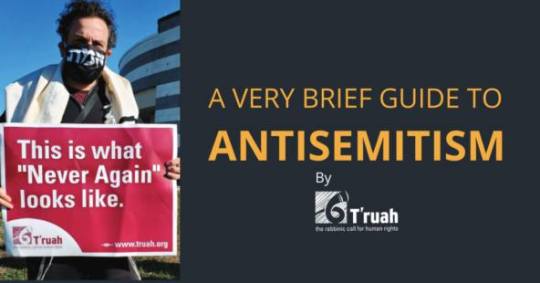
0 notes
Text

ALT:
In Hebrew, based on a somewhat old Jewish tale:
One day, when you'll reach The Championship Rd of the Heavens, they will not ask you why weren't you like Pikachu. They will ask you why weren't you Mimikyu.
(followed by a picture of Mimikyu)
1 note
·
View note
Text
Oy, What has befallen us.
Remember, Marvel Editorial what we had,
Oy. Watch and see our anguish,
Oy, What has befallen us.
Our land became of strangers,,
Oy. our houses to graves,
Oy, What has befallen us.
Alone in a world that hates and fears us,
Oy. For we have disrespected the land,
Oy, What has befallen us.
Women in Krakoa tortured,
Oy. For Jean is not with us,
Oy, What has befallen us.
3 notes
·
View notes
Text
“I’m Not Anti-Mutant Just Anti-Krakoa '' - Why We Should Compare Krakoa to Israel.
When HoX\PoX came out in 2019 I was living in Jerusalem and talking to a friend about it and eventually the question went up “Do we want to talk about Krakoa and Israel?” The answer was a resounding no. Unfortunately for me, some of the latest issues of X-Men titles made the connection between my actual homeland and my fictional favorite Island-state clearer and clearer. I don’t know if the writers meant to make the connections I see, but they are there and in order to truly understand what we’ve seen as the road to Fall of X is being published we need to look at the triangle of Israel, Anti-Zionism, and Anti-Semitism in real life.
Since we are talking about a volatile subject we do need to put on some very basic ground rules. Many critics of Israel claim Zionist would use the Anti-Semitisim card in order to ignore valid criticism. While my side of the issue needs to understand that not every criticism of Israel is antisemitic, the other side needs to understand that not all Anti-Zionism is automatically not Anti-Semitic. Anti-Semites also use criticism of Israel to ignore criticism of their own anti-semitism. In my opinion, both sides of this equation are not opinions rather basic recognition of reality needed to talk about this issue. The point of this article is not to prove that Israel is the source of all evil or to justify its existence/importance. This is about understanding what the plot of a comic book means to readers living in the real world and vice versa.
The Naive - Krakoa as Ugande.
While I decided to write this specifically during my reading of Duggan’s X-Men issue 23, I think it is best to start at House of X issue 1. It’s hard to ignore the parallels between Krakoa and Israel when Magneto, a Holocaust survivor, is hosting foreign ambassadors in Jerusalem. The new mutant nation was showing what Krakoa is, and what it has to offer to other nations. Host of the Cerebro podcast, Connor Goldsmith, brought up Krakoa as Israel without the Palestinian Issue. Since Krakoa is a newly formed island it can represent the good in the Zionist project without the bad - the fact that the country was formed in a land that was already populated. As an Israeli who is temporarily living in the US, this seems to be a desire shared by many left wing jews who want to love Israel but feel like they cannot due to the plight of the Palesstinians. Jonathan Hickman himself, while being a guest on said podcast, said that Magneto represented a form of politics evolved and better than humanity’s politics.
This aspiration, formed out of both of these hopes, reminded me of two Zionist naive works. The first one is a parody song by the Israeli comedic trio “Ma Ka’shur” - Why Not Ugande. The song, released in 2008 celebrating the 60th anniversary of the state of Israel, claims that Theodore Hertzel, as a symbol for the entirety of the Zionist leadership, was wrong to decline the British Uganda Scheme to create a Jewish national home in Uganda instead of our ancestral homeland. The chorus of the song begins with the words “Why not Uganda, why not Uganda, we do not go on busses” refering to the waves of suicide bombers who bombed Israeli busses during the time of the Oslo Agreement and during the first couple of years of the second Initifada. This naive view of the early days of the Zionist movement assumes that the Zionist project would not be opposed in Uganda.
The other work is from the writings of Rav Avraham Issac Kook, a rabbi who’s writing would eventually be the basis of the contemporary Religious Zionisim movement in Israel. Rav Kook was heavily influenced by European philosophers who believed that WWI was the last war in history. In his most famous book “Orot” (Lights in Hebrew) he writes “We have left the global political stage [after the destruction of the second temple and the beginning of the Diaspora YT] due to an external source forcing us, in a way that also reflected our inner wishes. Until that glorious time where a kingdom can be run without wickedness and cruelty.” (Orot, Lights out of Darkness, War, Passage 3)
Thinking that if only Zionism went a few dozen miles to the side everything would be perfect is as silly as saying that WWI is the last war in history and that’s why the Zionist project is going to be perfect. But this silly naivety can also become insidious. Krakoa started out as a perfect nation, harming no one while helping everyone. But that wasn’t enough. Setting the bar for what humanity expects of Krakoa so high that no other country could ever pass it, while expecting the mutant nation to do it is a ruse. Even when they ran a seemingly perfect country it wasn’t enough because Krakao’s actions were never the issue. Not when Krakoa is morally wrong, not when it is morally right. From its birth, Krakoa could never be accepted by those who prosecuted mutants. The problem would always be the existence of Krakoa because the world that hates and fears mutants cannot accept that they would have control over their own future.
The Good - Krakoan Pharmawashing
Since its inception the island nation of Krakoa has performed many outreach programs. The krakoan miracle drugs were the big opener of the nation’s international activities, the X-Men team built and lived in the tree house to help people outside of the island and now we’ve also seen Mutant First Strike, a team meant to act as disaster relief. It would be one thing if those efforts would simply fail to move the needle of public opinion towards mutants, but we see how these efforts are being used in anti mutant/Krakoa propaganda.
The mutant medicines are seen in the pages of X-Force and Wolverine to be a point of contention by those who oppose the island nation. In X-Men 22 we even see that Orchis are blaming mutants for poisoning their medicines. Sure, the lie is because Orchis are the ones who put the poison in, but all I could see is Krakoa being blamed for poisoning wells. Israel was also accused several times in poisoning wells, but the source for these rumors seem to come not out of fact, since those haven’t been presented, but out of the centuries old antisemitic trope of Jews poisoning wells.
In the real world, Israel is being blamed for “Pinkwashing the Occupation”; later on it also evolved to other issues like Veganwashing. The pinkwashing campaign does not mean that the good Israel does can not cancel out its wrongs, which is an actual critique. It started, back in 2010 as a critique saying the Israeli government uses its LGBT community to hide our atrocities. It also evolved, and today, in its extreme form Israel is blamed that many of the good we do (such as promoting green energy and vegan products) are only done in order that we can continue and oppress the Palestinian people. Every other country has done both good and evil, and reasonable people can see that a country, or people, can be both at the same time. But if you view a group as demonic then even its best qualities must be viewed in that light.
The Bad - Why Is It always Sentinels
I started writing this after reading X-Men 23. In this issue, Orchis, a global union of many anti-mutant groups, use of a sentinel as a proposed vehicle for peace and feint of ignorance made my blood boil. Orchis propaganda claims they “do not know” why the X-Men decided to attack a sentinel. The intentional use of Sentinels, the most recognized symbol of mutant oppression, is not foreign to me. While being accused of being a Nazi is pretty common for most people on the internet, it’s different when it’s used against the victims of that regime. When Roger Waters wanted to ‘criticize’ Israel he chose to do so wearing Nazi uniforms. Many Arab countries who ethnically cleansed their Jewish population blame Israel for committing that act, without an inch of recognition for what they did to the ancient Jewish Communities they used to have. The choice of Sentinels was not meant only to bait a response from the X-Men, it was meant to hurt them by reminding them all of their shared trauma.
The only thing I was missing in the issue was the claim that Orchis isn’t Anti Mutant, it is simply Anti-Krakoa. But Duggan already wrote that scene in his original Marauders run at the Dawn of X. And while it is not said explicitly here, Orchis are asking us to believe that the use of sentinels is not out of mutant hatred but due to something else. The idea that mutants shouldn’t attack a sentinel is absurd, but claiming that mutants are not allowed to defend themselves in face of clear aggression actually does makes sense. Because even after Israel spent decades developing a defensive technology that doesn’t hurt any Palestinian, we are still being blamed for using it, as famously seen made by Jon Oliver regarding the Iron Dome. In the last year we have seen so much bad spewing out of Krakoa, but the hatred came before all of that. Krakoa is primed to be a quick excuse for mutant hating bigots, just like Israel is used by many anti-semites regardless of all the bad and good that comes out of my country.
One of the common conceptions surrounding X-Men comics is that the mutant metaphor is problematic since minorities are in a position of weakness while mutants have super powers. But while Jews and Israelis do not shoot lasers from the eyes we are at the bottom of every conspiracy theory. From space lasers from the right to being blamed for American police brutality on the left, we are attributed fictional powers and being blamed for them long before the forming of Zionism as a modern political movement in 1880. Krakoa isn’t Israel, it is better than we could ever hope to be and it is worse than we will be able to become. Krakoa is mostly a fictional state, something that we will never be again. So the answer to Israel-Palestinian conflict would not be found in the Fall of X, but looking at the hatred, be it justified or Antisemitic, surrounding Israel is a great way to write visceral scenes that sticks with the reader. Especially now as things are about to take a turn for the worse for my favorite made up nation.
I do not know what the Fall of X has in store for us. I truly hope we are not about to witness the end of Krakoa, but I know it’s a possible outcome. Both from watsonian and the doylist perspective Krakoa was always going to fail. In the pages of Powers Of X issue 6 we learned that Xavier, Magneto, and Moira , the founders of Krakoa, knew the threats that are facing this miracle island and are not sure they will make it in the long run. From an industry perspective, many fans simply assume that Krakoa can’t last since every big change in comics gets pushed back eventually into the status quo. Not to mention that no one thinks that the MCU is going to let Krakoa in.
Even if Krakoa doesn’t fall, the threat of the destruction of the nation is on full display in previews we’ve seen. And that’s the point, most countries in the world are not under constant threat of complete annihilation, but Krakoa and Israel are. When we criticize most nation we demand a regime change, not promoting relocating millions of people, but that is always the explicit goal of anti Krakoa and Anti-Zionist campaigns. You do not have to support Israel in order to be a “true” X-Men fan, but it is my opinion that the best way to understand this age of comics, and the best way to write it, is to lean in on the Israel metaphor.
8 notes
·
View notes
Note
When I was a #edgy teenager, I read it excitedly. Now it's my most hated series. I heard good things about the show but I would never watch it.
Now that The Boys has been out for 2 seasons, do you have any thoughts on it?
I’m not watching it, nor will I ever.
65 notes
·
View notes
Text
friendly reminder that gypsy is a slur and if y'all gadjo keep saying it i will fuck u up :-)
46K notes
·
View notes
Text
It has happened.
I have purchased Trans Wizard Harriet Porber and the Bad Boy Parasaurolophus
Will provide updates
115K notes
·
View notes
Text
since the old version of this post was flagged for ‘adult content’…
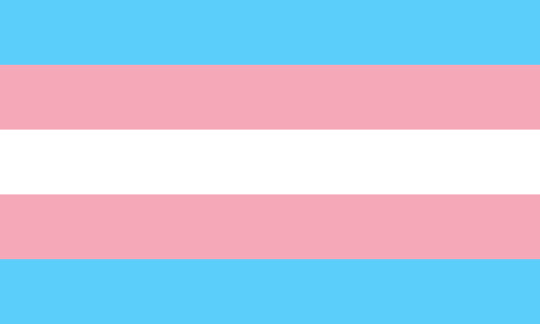
reblog this post if your account is a trans safe space or owned by a trans person!
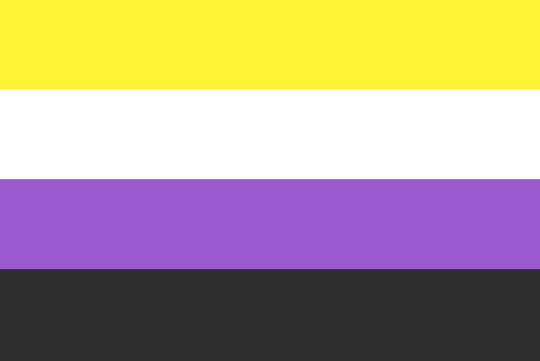
along with that, reblog if your account is a non-binary spectrum safe space or owned by someone on the nb spectrum!
183K notes
·
View notes
Text
Welp. Here I am again. Its extremely depressing to have to do this a second time, but it needs to be said.
So. I recently made that one post about the new Harley Quinn show and how the second episode was antisemitic. Turns out, it barely holds a candle to episode SIX.
There are two Jewish characters in the this episode: Sy Borgman and Golda.
First of all, yes, Sy Borgman has always been Jewish- that’s not a problem.
What IS a problem is that now he is a super scummy New Jersey landlord. That’s new for this show.
So what are Sy and Golda like? …You guessed it. More harmful Jewish stereotypes!
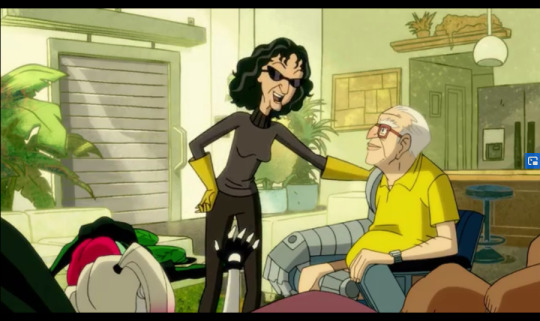
They find Harley and crew comatose, mistake them for dead, and try to figure out what to do with the bodies. They are shown to be TOO CHEAP to use proper cleaning services or employ anyone to do this. And that’s when Golda hits us with a line I had to listen to twice to make sure I wasn’t hallucinating.
“A little Jewish Lightning never hurt anyone.” What is she referring to? Burning the building down and taking the insurance. Most people might not know this but YES that phrase is a huge slur. If you don’t believe me, you are free to google ‘Jewish lightning’ and see what comes up.
‘What’s Jewish lightning?’ asks one of the characters, to which another responds, ‘Perhaps Black Lightning’s Israeli cousin.’
……..Because all Jews are Israeli right? Because all Israelis are Jews right? This kind of bullshit is what perpetuates the Jewish people as having ‘dual loyalties’ - meaning that the country they live in cannot trust them to be 100% loyal because every Jew is also automatically invested in Israel.
So after this lovely exchange, they decide to just burn the bodies because its the cheapest option….
Let me tell you something. Jewish faith is against cremation. Not to mention the fact cremation is uncomfortably close to the way Jews were killed in the Holocaust and burned in the ovens.
So it makes total sense that these two Jews would dance around a pizza oven full of burning bodies singing about cremation. Right……?
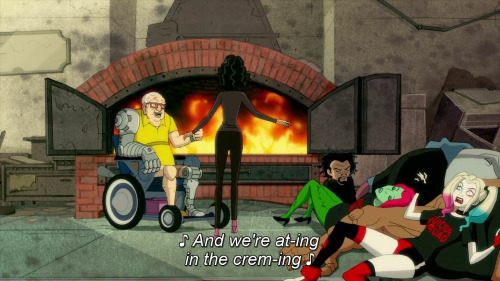
Another note from their conversation- when Sy comes up with the idea to burn them, Golda remarks, ‘There’s the Sy who armed Bin Laden in the 80s.’
Yes, this refers to his spy past but, since he is Jewish? Ties that shit back to us too. So thank you for that? Pretty sure we have enough garbage we get blamed for.
The last thing that really disturbed me, is a twitter convo about this episode between two of the creators.
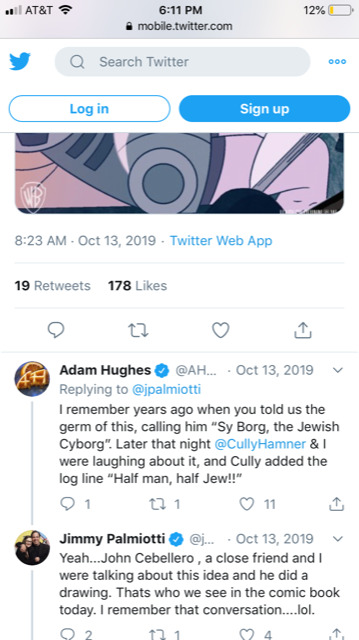
Adam Hughes here is recalling a ‘joke’ told by Cully Hamner. I know for a fact that Adam Hughes is not Jewish. I could find nothing at all suggesting that Cully Hamner was Jewish either.
Therefore making that kind of joke? EXTREMELY INAPPROPRIATE.
And honestly, even if they were Jewish- putting this kind of self depreciating stuff out there only strengthens shitty stereotypes.
This show is straight up antisemitic and unapologetic about it.
13K notes
·
View notes
